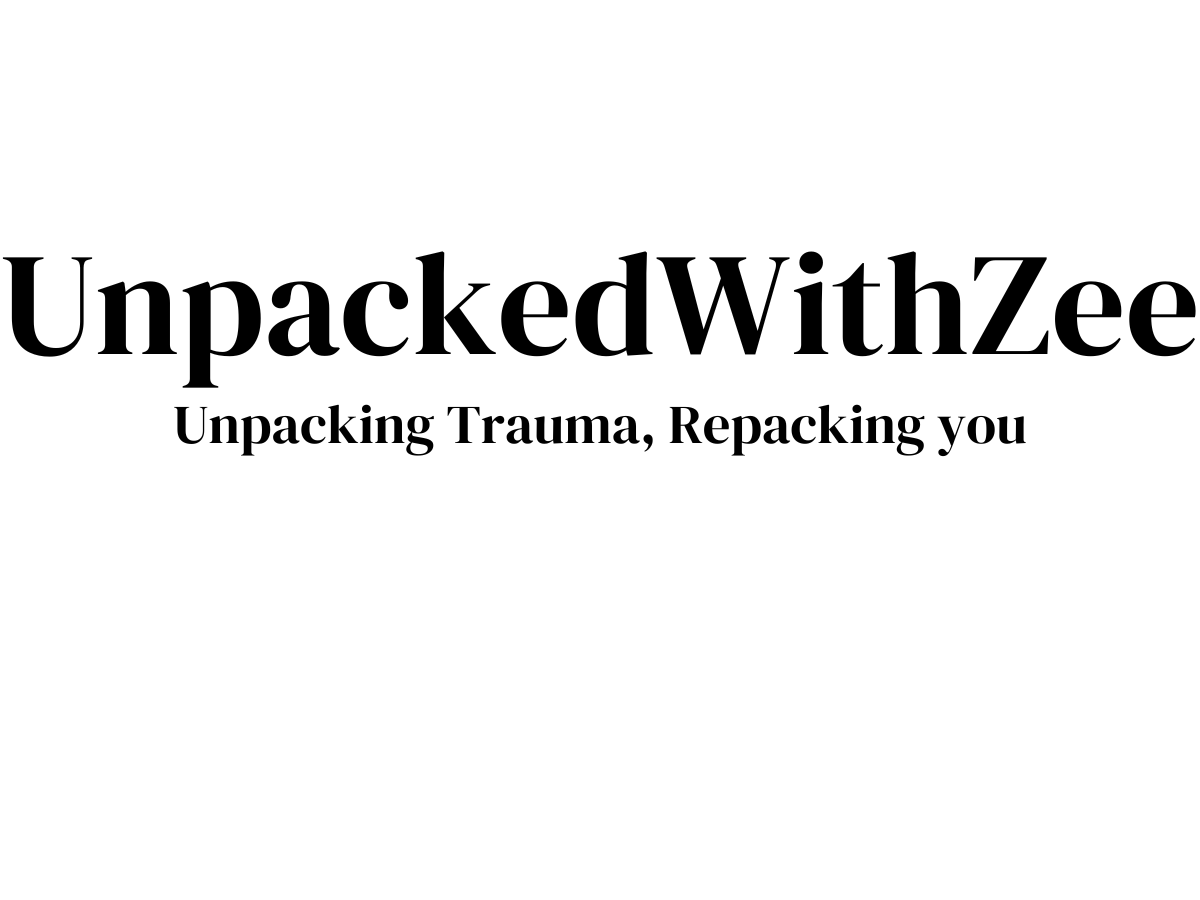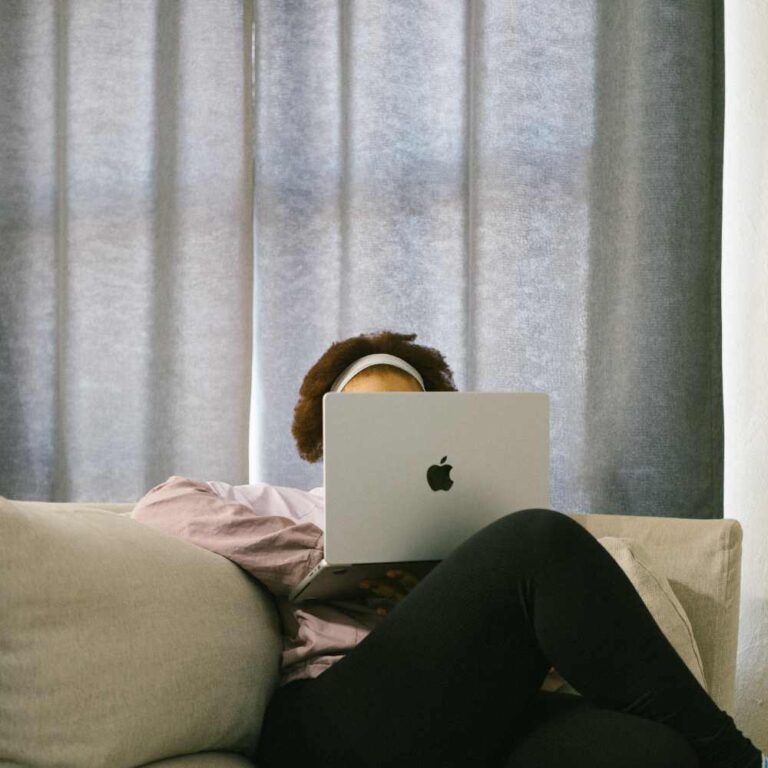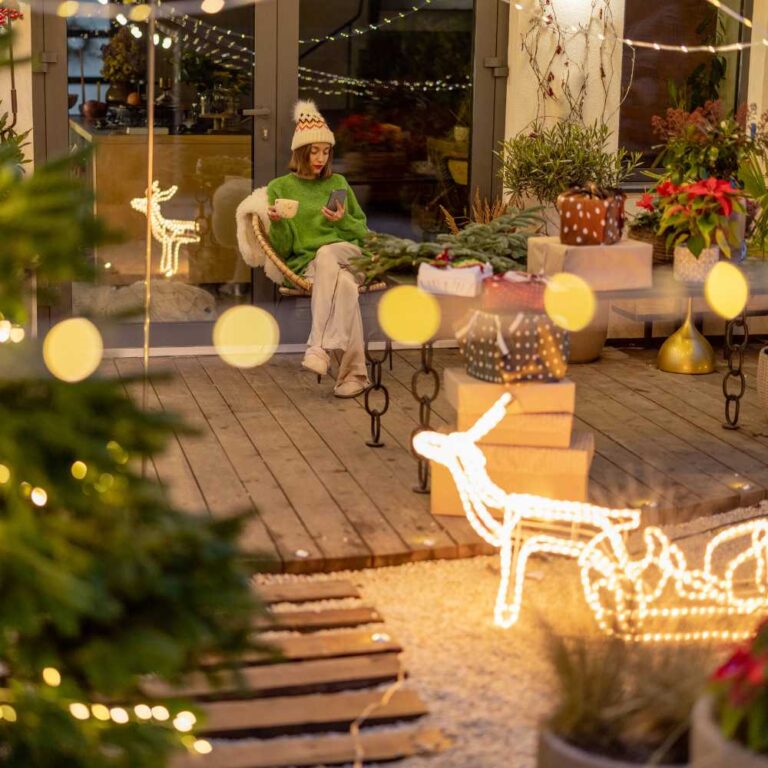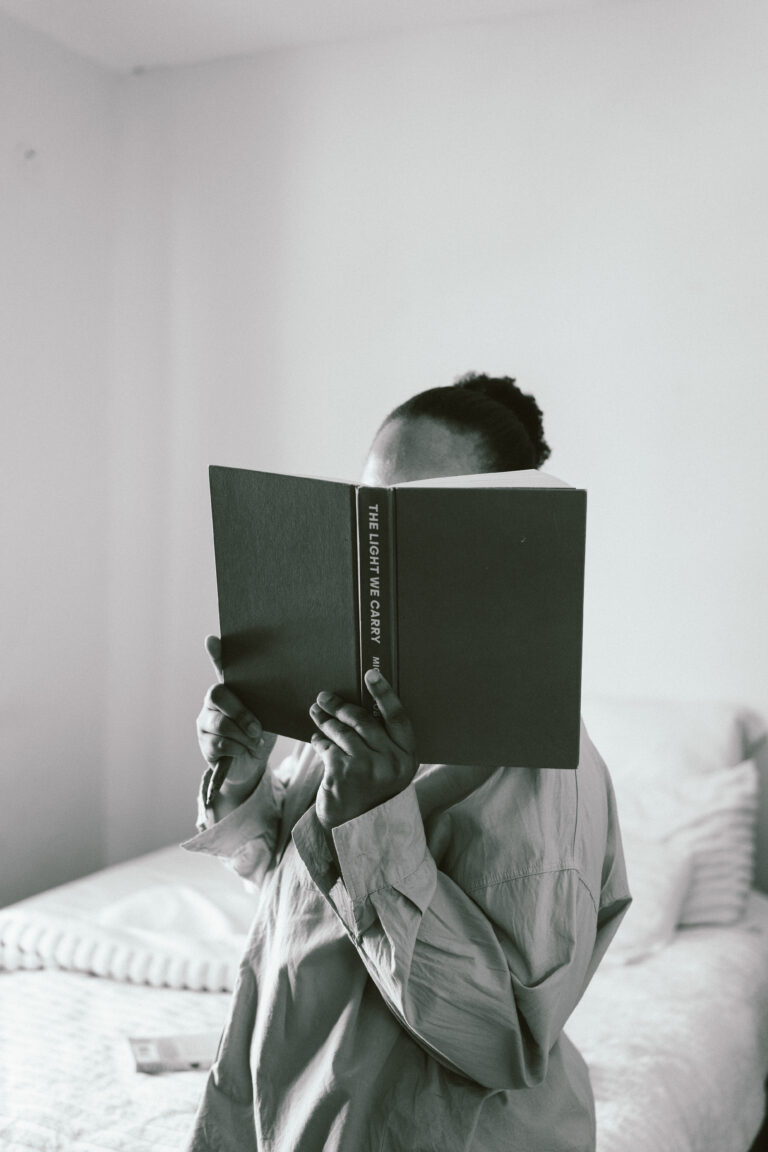The Dark Side of Self-Help: How Overloading on Content Can Hinder Your Growth
This post may contain affiliate links, which means I’ll receive a commission if you purchase through my link, at no extra cost to you. Please read full Amazon Associates disclosure here.
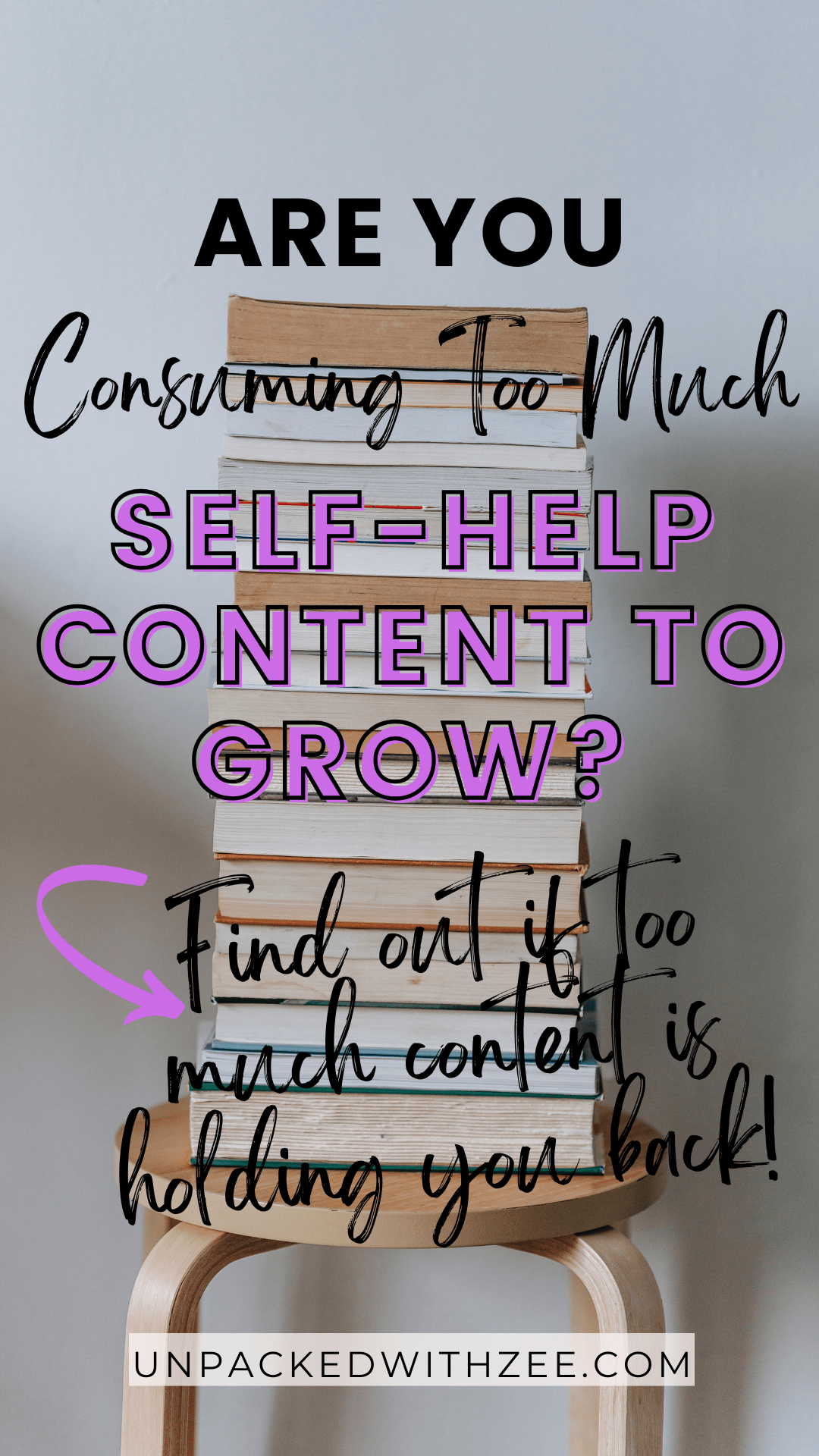
Once you decide to take charge of your life, the first thing you might think of is doing a quick Google or YouTube search. You’ll find an abundance of self-help content ready for your perusal. Before you know it, you’re consuming it all until you can’t seem to stop.
Why Self-Help Books Can Be Counterproductive
The self-help rabbit hole is one I know very well. I’ve read the books, listened to the podcasts, watched the videos, and even paid for masterclasses and seminars.
Phew! Bestie, I’ve done it all.
I won’t deny that they helped me become more aware of myself and maybe even gave me the vocabulary to name and describe what I was going through.
Some even inspired me to want to do better. Others tried to offer tools to help me kickstart my transformation—the 5-minute rule, mindfulness, the 5 AM club, dopamine detoxing, etc.
But oddly enough, none have been able to keep me going, to help me actualize this journey I was yearning for. So, because I wasn’t finding the answers, I kept going and going, consuming and consuming.
A year deep into this, I realized how unproductive I was. I was stuck, and the self-help content was, in fact, at the core.

Bestie! I’m not necessarily saying to throw the books away or stop going to the seminars, but I want to tell you that they are not the saviors you might have thought they’d be—at least not on their own.
Growth is not a miracle. There is no one transformative book that’s going to catapult you into becoming this highly functional person.
The formula is simple and doesn’t need any lengthy authoring: discipline and consistency.
That sounds exhausting to even think about, I know! But you see, life is pretty persistent in ensuring you understand its principles—no pain, no reward; no work, no pay; no pain, no gain; .
All the famous quotes we seem to be denouncing now because they don’t cater to our laziness. Our laziness to travail and emerge strong on the other side. Our laziness to do the hard things, to endure.
Most of us live on impulse. We are ruled by our feelings to the point where we’ve coined phrases like, “Listen to your feelings; resting is a form of self-care.”
Want to be shocked? The fact that it’s easy for us to be addicted to self-help content is the first sign that we lack the willpower to earn our rest, to put in the necessary work for our healing and our goals.
We enjoy the elusion of productivity when in fact we are stuck in one place.
There’s no cheat code, bestie. We help ourselves by doing the hard things, taking responsibility for ourselves, not relying so much on external sources for motivation to do what’s necessary, and by denying our mind or flesh of things detrimental to our growth.
Small Actionable Goals
I started by simply making my bed, whether I’m in a rush or not. I made sure to leave the house put together, woke up at a time suitable for my goals whether I slept late or not, stuck to my schedule, and didn’t award myself for doing the bare minimum.
I held myself to the standard of the person I imagined myself to be once I’ve healed and achieved my goals.
5 Signs You need To Edit Your Self-Help Content
1. The Overload Effect
I had information overload, where more wasn’t necessarily better. Self-help books contributed to this excess, offering a multitude of methods and theories that overwhelmed me rather than empower.

The influx of advice lead to decision fatigue and a paradox of choice; one week I’m waking up at 5AM the next I’m listening to my body and sleeping 8 hrs., the next I start wondering if I truly need 8hrs.
I was paralyzed by the sheer volume of options rather than making tangible progress.
2. The Shelf of Unfulfilled Promises
It’s not uncommon for people to accumulate self-help books with the best of intentions, only to find them languishing on a shelf, forgotten.
This “Shelf of Unfulfilled Promises” can become a reminder of unmet goals and aspirations, making you feel worse about yourself rather than better.

Sometimes, the best course of action is to let go of these books and refocus on practical, actionable steps that align with your current needs.
I have read so many books but have so many I have not read and I always felt unproductive because I hadn’t gotten to reading them.
The long playlist of self-help gurus on my YouTube is longer than 5 Quinton Tarantino movies(if you aren’t familiar with Quinton’s work, his movies are usually 2+ hours long never less, I LOVE THEM ALL) and I always felt the urgency to watch them, If i did, when was I gonna get to actualizing things though?
3. When Advice Becomes Noise
Not all self-help advice is created equal. What worked wonders for one person might not resonate with you, and advice that’s universally applicable can still be irrelevant in your specific context.
If you find that the advice in your collection feels more like noise than guidance, it might be time to reassess whether this content is truly serving your needs.
Feel good motivation really falls flat on my ears. The 2 minutes pump it gives doesn’t serve me. I find that practical encouragement that feeds my self-belief and discourages my bad habits works.

I find myself leaning towards Dr Jordan Peterson and Mark Manson more because they do not sugarcoat the truth and you can feel a sense of genuineness in their encouragement.
I am Christian so the bulk of my encouragement and ideation about life comes from Christian speakers and literature, the bible being the main one.
4. The Power of the Present
Self-help content often focus on changing the past or predicting the future, but real progress comes from being present and taking actionable steps in the here and now.

If you find yourself stuck in a cycle of reading but not doing, it might be time to let go of the books and focus on practical actions.
Sometimes, the best way to move forward is to stop consuming advice and start creating change.
5. Building a Meaningful Library
Rather than accumulating a vast number of self-help content ,curate a smaller, more meaningful collection.

Select 1 or 2 mentors that genuinely inspire you, offer practical advice relevant to your current situation, or that challenges you in a way that leads to growth and stick with them.
Quality over quantity can help ensure that the content you consume serves as a true resource rather than a source of stress. Subscribe to our newsletter to get our Transformation Mondays nuggets to equip you with all the self help/self improvement rescources you need.
Here are my top recommendations after reading so many books and following so many philosophers, mentors, speakers, life coaches and “gurus”.
I find myself reaching for these every now and then;
Christian Literature
Heaven – Randy Alcorn
Understanding the power and purpose of women – Myles Munroe
When Faith Disappoints – Lisa Victoria Fields
Upon Waking – Jackie Hill Perry ( 60 day devotional )
Non-Christian Literature
12 rules for life – Dr Jordan Peterson
Man’s Search for Meaning – Viktor E. Frankl
Letter To My Daughters – Maya Angelou
The Mountain is you – Briana Wiest
Your list doesn’t have to look like mine, but please make sure that it is narrowed down to only people/books that truly offer you value and not a fancy word salad.
Also, inspiration does not have to come from so far, look within your community, your family; I bet there are real people close to home who embody all the values, principles and teachings we seek after from famous people.
Conclusion
I am on my own personal journey of self-improvement and I know how difficult it is to put yourself together, to get up and try to undo whatever damage has been done and how discouraging it can feel when it feels like nothing works.
This is honestly why I created this blog, to give you a clear perspective, to encourage you through my experiences but also to call you out so that you can do better for yourself.
I really look forward to hearing your story of becoming, how you are pressing on and creating a better life for yourself.
What challenges are you currently facing and what do you think would really help you?

